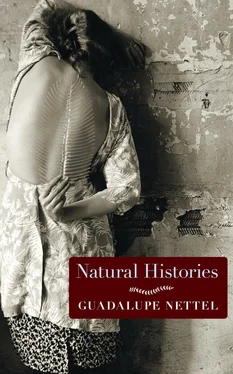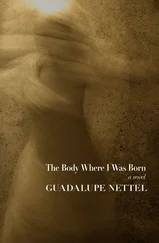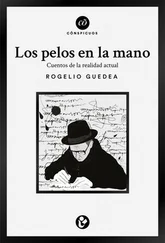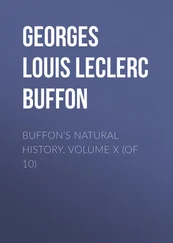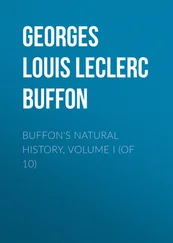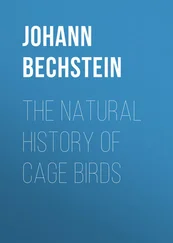That morning, as soon as my father left for his meeting, Mom went into the pagoda and looked through his online accounts. Dad had been basically handicapped with those kinds of things for many years and Mom had handled his e-mail. She found in his trash folder two compromising photographs with dates matching his trip.
“Her name is Zhou Xun,” she told me. “She’s an actress and, naturally, very young.”
Based on what she told me, in one of the photos my dad was with her in some scenic spot. The typical shot taken on a cell phone while out walking. In the second they were smiling, barely dressed, in what looked like a kitchen in an apartment. Both their names were on the bottom of the photo along with the dates. My mother was convinced that the actress was the one who had taken them and had promised to send them to him. Mom bemoaned her luck for an hour, not touching her cake. She listed all the sacrifices she’d made for him since the time they’d met, everything she’d done to turn him into the prestigious playwright he was today, to keep him protected in a stable home, centered around him and where he’d always had the leading role. Things obvious to both of us, and I’m sure to my father as well. She confessed to me how disappointed she was by his infidelity, and when she grew tired of feeling sorry for herself she returned to the subject of his pet.
“That animal is diabolical, I’ve said it many times before. I want to ask you to get rid of it.”
“Why don’t you kill it yourself?” I asked. But she wouldn’t.
“If your father finds out, I think it will be easier for him to forgive you.”
Mom was convinced that the snake was the incarnation of her marital troubles. She had put her entire life into that marriage. How could I refuse her request? I took her trembling hand and promised that she could count on me. She let out a heavy sigh, after which she began to eat slowly, like a good little girl whose punishment had just ended.
I suggested we go home a different way so we took the metro from Gaîté. We got off at Edgar Quinet and cut through the cemetery, walking in silence over a carpet of dead orange and yellow leaves. As I always did when I passed through, I examined the inscriptions on the headstones, the cities and dates carved into the stone, the occasional epithet. I thought how in the end all that is left of us besides our name is two dates and two cities, if not one city as in my case it could be. It was impossible to know where my father would die and where he would be buried, but one thing was certain: under his name would be written Beijing, 1953. I wondered if Mom was thinking the same thing, but she looked so lost in her own thoughts that I decided not to ask. A few minutes later she dispelled my doubts on her own.
“If you look closely you see that most of the women are buried next to their husbands. There are few women alone in this cemetery.”
I realized that she was scared of being buried apart from my father.
“There’s Sartre and Simone de Beauvoir’s grave,” she added, her tone that of someone who has just discovered something interesting. I looked at the headstone she was pointing to: dark letters carved onto a white surface. You couldn’t say they’d been an orthodox couple. For years they lived in a love triangle and had bloody fights. But still, look at them. There they are, buried like any other husband and wife.
That afternoon, after I’d already promised to destroy the snake, I swore to her that come what may, I’d bury her in the same place as my father.
“It’s fair,” I concluded. “All those years aren’t invalidated just because of some teenage girl.”
A few feet away I found two gray headstones engraved with gold lettering in Chinese and French. A very large family lay in each.
“Maybe I’ll also fit near you,” I said to her. “Why bury only two when so many bones fit inside a single grave?”
My mother never again mentioned what we’d talked about that afternoon. When we got home she made dinner like she did every night and went back to being her old self, or at least she seemed to. I on the other hand carried on my shoulders the weight of my two promises, especially the more immediate one.
Before going to sleep I searched online for more information about my father’s snake. I learned that Daboia is the name of the genus to which the five poisonous snakes of India belong. In Hindi the word means “that which lies hidden and lurking in the darkness.” I thought of his lover in Beijing. I then began investigating the risks of living with these animals. I discovered that their venom contains neurotoxins that block respiration; their victims die of asphyxiation. A single bite can be lethal if the correct antidote is not administered immediately. What was Dad, whom I’d always thought of as a rather cowardly man, doing with one of these creatures in his study? Placing this threat a few feet from his family, barely separated from us by delicate glass, was like activating a time bomb. Hadn’t it been enough to endanger us with his Chinese romance? Mom was right. We had to get rid of the creature. But how? At that point I hadn’t the faintest idea. I was going over it in my mind all night and I came up with a few options. The first — the most humane — was to release it in the park a few blocks from the house. Then I realized that it might bite me when I tried to pick it up, whether I meant to hurt it or free it, and I didn’t want some child finding it behind a bush or on the wooden handrail. Another risk, though less probable, was that Mom would find out and accuse me of betraying her. I then thought of poisoning it. It was the cheapest and easiest way. The only danger was that my father would find out and blame me forever. I decided to risk it. The next day after school I went to a gardening store and asked how I could kill a snake I had spotted in my yard. They recommended a substance, apparently very effective, and I took some home with me. I hid it in the top shelf of my dresser, waiting for the right time to go up to the pagoda.
In the meantime, I kept looking into his study window with my binoculars. One afternoon I found my father consulting the I Ching . It wasn’t something unknown to me. He and Mom had always had one in their studio and whenever someone suggested a new theater project they flipped the coins to find out what they could expect. However, as strange as it may seem and even though it was a Chinese book — perhaps the Chinese book par excellance — I’d always associated it more with my mother. She was the one who usually tossed the coins on the table. That afternoon Dad’s face in my binoculars was serious and yet serene. Though I tried, I couldn’t even imagine what he had asked. Nor was I able to focus on the book well enough to read its response. My father read in front of his computer the pages that corresponded to his hexagram. He then left the book open and stood up. He walked a few steps to where the terrarium was and sat down and watched his snake for a long time. My mother, who had been cooking right next to me this entire time without speaking, called out a few times that dinner was ready and after several minutes of silence we heard Dad’s slow footsteps coming down the stairs. In the little he spoke that night, he mentioned that Friday morning he’d be going to the Chinese embassy. Through a very close friend he’d managed to get a meeting with a senior official to discuss the whereabouts of his parents. Mom and I looked at each other in surprise. I remember — and it still pains me, how this went — that Dad tried to look me in the eyes and I had to look away.
“It should matter to you a little bit,” he said to me. “They are your relatives too.”
I was about to respond by saying that I knew perfectly well who my grandparents were and I didn’t need any more, but Mom, in her typical restraining way, rushed in.
Читать дальше
